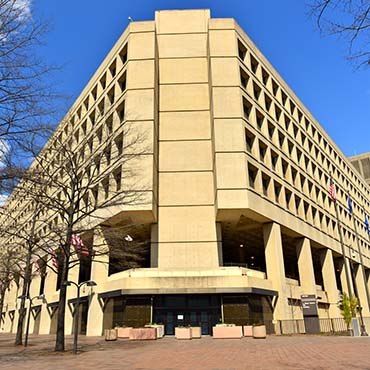FBI bullish on enterprise services
"It's a major change internally within the FBI [in] how we buy stuff," FBI Chief Acquisition Officer Paul Courtney said.

The FBI must move to more enterprise-wide contracting for IT services to avoid duplication and waste, according to Paul Courtney, the bureau's chief acquisition officer.
The FBI has seven contracting units buying IT, yet only about half of contracting offers are using a vehicle known as the IT Acquisition Program because it doesn't fit their needs, Courtney said June 9 at ACQUIRE, a conference sponsored by FCW.
The FBI is gradually moving to an enterprise-wide model – which Courtney called a "major change" in how the bureau buys things – but it will take time to knock down internal contracting walls, he said. "It's going to take a few years to even get all the customers on board."
The FBI is further ahead than the rest of the Justice Department in adopting enterprise IT contracting, but far behind the General Services Administration, he added.
Courtney also said the FBI is heeding the Obama administration's call for greater use of category management, an en vogue approach to enterprise contracting. The bureau uses four of 10 "super categories" designated by the inter-agency Category Management Leadership Council, he added.
There is big money at stake in the FBI's evolving approach to IT contracting. The bureau spent about $3.7 billion on goods and services in fiscal 2015, roughly 40 percent of which went toward IT, according to Courtney.
The contracting policy shift is reflected in an agency reshuffling intended to give newly appointed CIO Gordon Bitko more control of enterprise-wide IT resources. The bureau's CIO office previously controlled only 40 percent of IT resources, Courtney said, but Bitko has been empowered to take on more responsibility.
Part of Bitko's charge is to look at cloud services, for which Courtney said the bureau still lacks an overarching approach. The FBI nonetheless has ongoing pilots with Amazon Web Services related to using classified information in the cloud, Courtney told FCW after his presentation.
In his presentation, Courtney did not mention the biggest FBI contracting controversy of recent months: the bureau's hiring of a unnamed contractor to unlock the iPhone of one of the San Bernardino, Calif., shooters.
FBI Director James Comey hinted in April that the bureau paid the vendor over $1 million to crack the dead terrorist's phone, while a Reuters report, citing anonymous sources, later put the figure at less than a $1 million.
The FBI controversially chose not to submit the method for unlocking the iPhone to an interagency review process for disclosing software vulnerabilities, saying it did not have enough technical information to do so.
Jason Healey, who was director for cyber infrastructure protection at the White House from 2003 to 2005, cried foul, suggesting that the FBI may have written the contract to avoid having to disclose the vulnerability.
Asked if this was the case, Courtney said he was not privy to those contracting discussions. He said the lack of details surrounding the contract was not unusual given the classified work, and added that the episode had not created any friction with other contractors.





